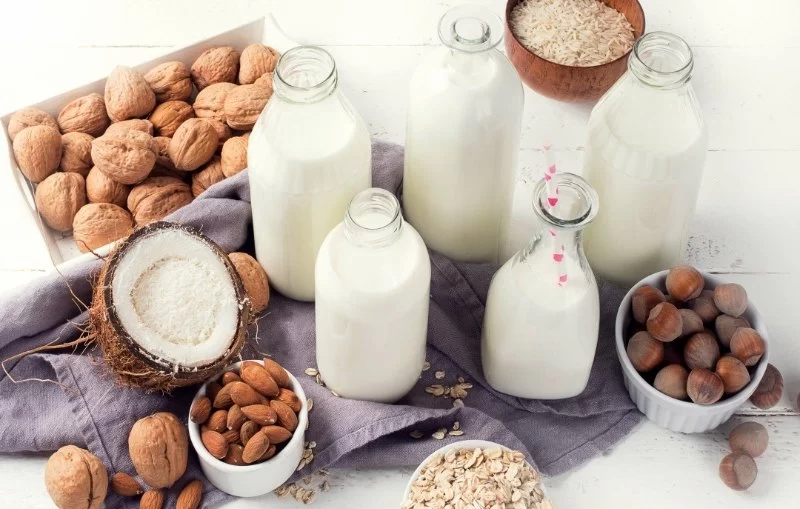- why-dairy-free-matters-for-heart-health - Why Dairy-Free Matters for Heart Health
- top-dairy-free-alternatives-you-should-know - Top Dairy-Free Alternatives You Should Know
- nutritional-comparisons-how-these-options-stack-up - Nutritional Comparisons: How These Options Stack Up
- real-life-transitions-to-a-dairy-free-heart-healthy-lifestyle - Real-Life Transitions to a Dairy-Free Heart-Healthy Lifestyle
- tips-on-switching-to-dairy-free-without-losing-nutrition - Tips on Switching to Dairy-Free Without Losing Nutrition
1. Why Dairy-Free Matters for Heart Health
More people are realizing that dairy isn’t always heart-friendly. Some full-fat dairy products are high in saturated fats, which can contribute to elevated LDL cholesterol levels—a key risk factor for heart disease. While not all dairy is harmful, replacing it with dairy-free alternatives for a heart-healthy lifestyle can make a measurable difference, especially for those with existing heart issues or cholesterol concerns.
According to the American Heart Association, plant-based diets rich in fiber, healthy fats, and natural antioxidants are highly beneficial for cardiovascular health. Choosing dairy-free options—like almond milk instead of cream or coconut yogurt over whole-milk yogurt—can support lower cholesterol levels and help maintain healthy blood pressure.

2. Top Dairy-Free Alternatives You Should Know
Whether you're making smoothies, baking, or just looking for something to splash into your morning coffee, the market for dairy-free products has exploded with flavorful, nutrient-packed options. Here are a few key players:
Almond milk: Low in calories and saturated fat, almond milk is a favorite for its nutty flavor and silky texture. Look for unsweetened varieties with added calcium and vitamin D.
Oat milk: A rising star thanks to its creamy mouthfeel, oat milk also provides more fiber than most alternatives and is often fortified with heart-healthy nutrients.
Coconut yogurt: Rich and satisfying, coconut yogurt is a great substitute for dairy-based versions. Be mindful of sugar content and choose options with live probiotics.
Cashew-based cheeses: Whether you’re spreading it on a cracker or melting it over a plant-based pizza, cashew cheese delivers creaminess without the cholesterol.
Atlanta Heart Specialists
atlanta heart specialists
4375 Johns Creek Pkwy #350, Suwanee, GA 30024, USA

3. Nutritional Comparisons: How These Options Stack Up
Let’s break down how these alternatives perform nutritionally compared to traditional dairy:
Fat content: Plant-based milks generally contain less saturated fat than whole dairy, which is essential for reducing LDL cholesterol. Coconut products do have more saturated fat but lack cholesterol.
Calcium and vitamin D: Fortified versions of non-dairy milks often match or exceed cow’s milk in these vital nutrients.
Protein: While almond or rice milk may be low in protein, soy milk offers an amount comparable to cow’s milk—about 7 grams per cup.
Choosing smartly ensures you’re not just ditching dairy but also maintaining your body’s essential nutrient balance.
4. Real-Life Transitions to a Dairy-Free Heart-Healthy Lifestyle
Linda, a 57-year-old retiree from Atlanta, decided to go dairy-free after her doctor flagged her rising cholesterol. She started substituting oat milk in her coffee and switched to vegan butter. “I didn’t expect much,” she said, “but after six months, my bloodwork improved and I didn’t miss dairy one bit.”
Stories like Linda’s are increasingly common. Many people make the switch not just for heart health, but also for digestive comfort and ethical reasons. The key takeaway? It doesn’t have to be complicated or restrictive. And you don’t have to do it alone—platforms like HeartCare Hub offer product suggestions and support tailored for heart-conscious shoppers.
5. Tips on Switching to Dairy-Free Without Losing Nutrition
Going dairy-free isn’t just about cutting things out—it’s about replacing them wisely. Here are some expert-backed tips:
1. Choose fortified alternatives: Always check the nutrition label for calcium and vitamin D. Fortification ensures you’re not missing out on key bone-supporting nutrients.
2. Don’t forget healthy fats: Avocados, flaxseeds, and walnuts are excellent sources of heart-healthy fats and can round out your diet beautifully.
3. Balance the macros: Add legumes, tofu, and nuts to compensate for the protein lost from dairy. Your heart and muscles will thank you.
4. Plan ahead: Meal planning reduces the temptation to reach for dairy-based comfort foods. Prep dairy-free versions of your favorite meals so you're never left without options.
A heart-healthy lifestyle doesn’t mean giving up flavor or enjoyment. With the right dairy-free alternatives, you can eat well, feel full, and support cardiovascular wellness for the long run.






















Deborah Heart and Lung Center
deborah heart and lung center
200 Trenton Rd, Browns Mills, NJ 08015, USA